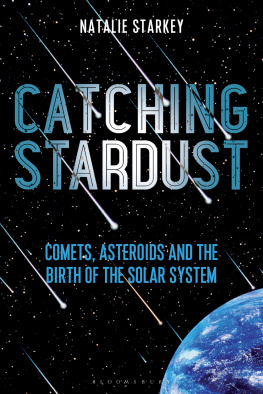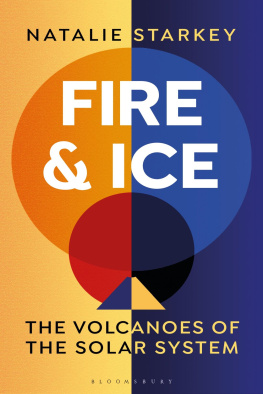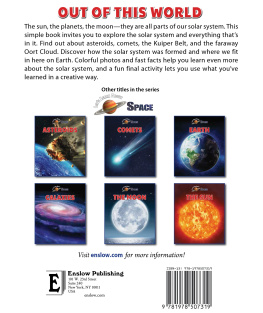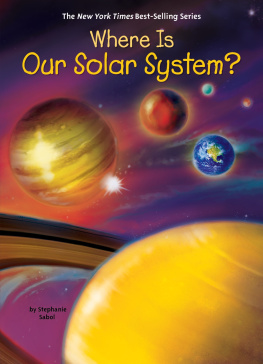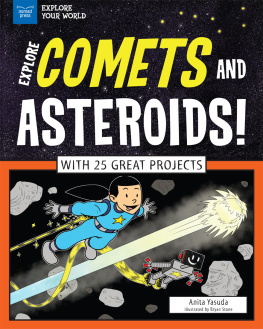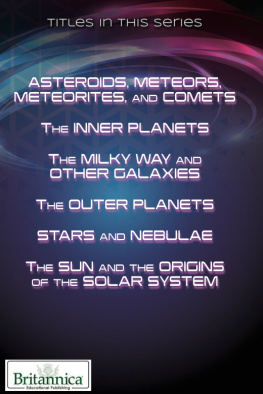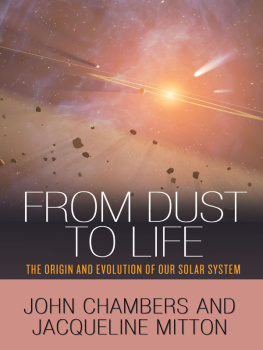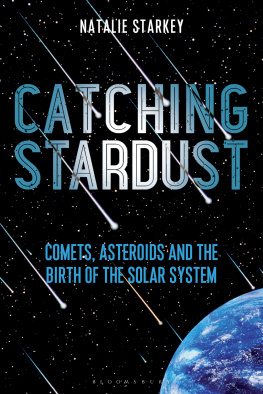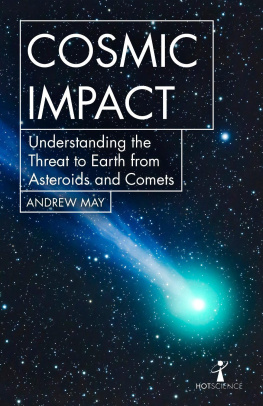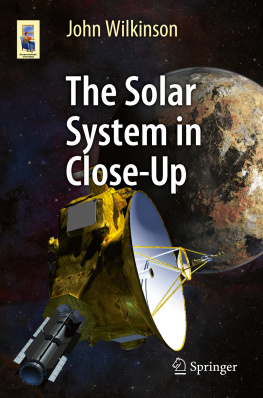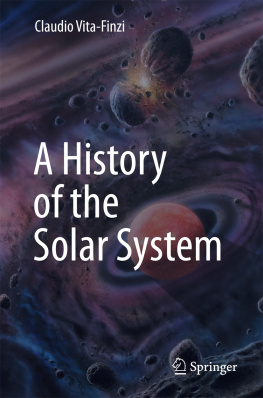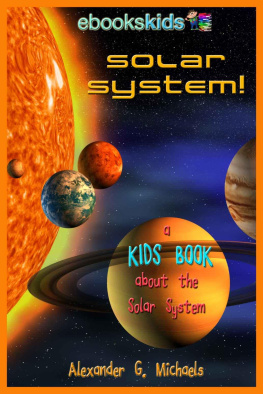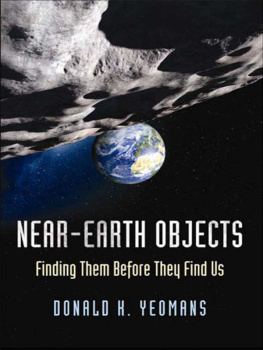
Also available in the Bloomsbury Sigma series:
Sex on Earth by Jules Howard
p53: The Gene that Cracked the Cancer Code by Sue Armstrong
Atoms Under the Floorboards by Chris Woodford
Spirals in Time by Helen Scales
Chilled by Tom Jackson
A is for Arsenic by Kathryn Harkup
Breaking the Chains of Gravity by Amy Shira Teitel
Suspicious Minds by Rob Brotherton
Herding Hemingways Cats by Kat Arney
Electronic Dreams by Tom Lean
Sorting the Beef from the Bull by Richard Evershed and Nicola Temple
Death on Earth by Jules Howard
The Tyrannosaur Chronicles by David Hone
Soccermatics by David Sumpter
Big Data by Timandra Harkness
Goldilocks and the Water Bears by Louisa Preston
Science and the City by Laurie Winkless
Bring Back the King by Helen Pilcher
Furry Logic by Matin Durrani and Liz Kalaugher
Built on Bones by Brenna Hassett
My European Family by Karin Bojs
4th Rock from the Sun by Nicky Jenner
Patient H69 by Vanessa Potter
Catching Breath by Kathryn Lougheed
PIG/PORK by Pa Spry-Marqus
The Planet Factory by Elizabeth Tasker
Wonders Beyond Numbers by Johnny Ball
Immune by Catherine Carver
I, Mammal by Liam Drew
Reinventing the Wheel by Bronwen and Francis Percival
Making the Monster by Kathryn Harkup
Best Before by Nicola Temple
For Chloe
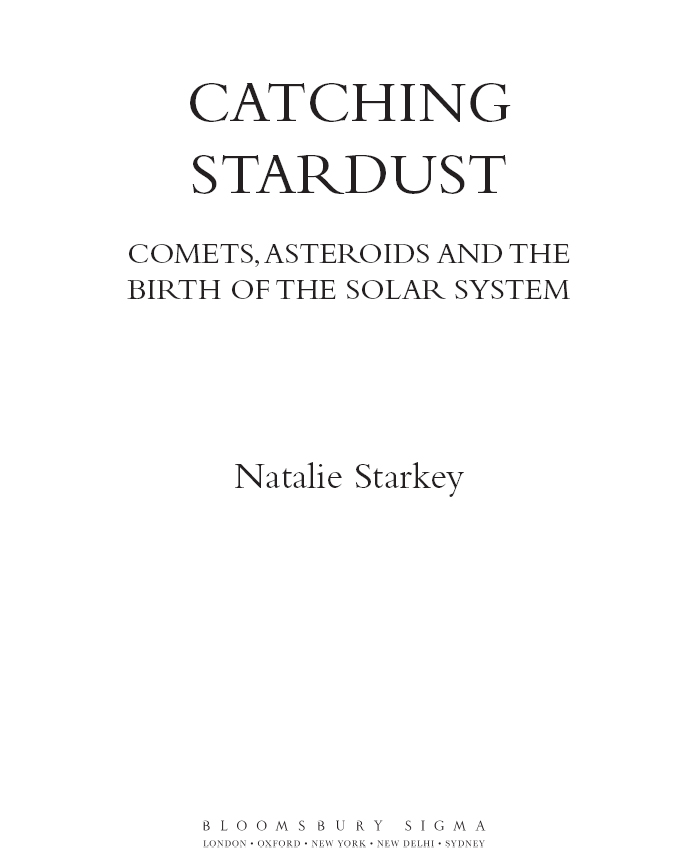
Contents
There are so many people Id like to thank for helping me get to this point having completed my first popular science book. Ill start with the person who persuaded me to give geology a go in the first place, despite my scepticism that it was just looking at rocks. Mr Birch, my A-level geology teacher at The College of Richard Collyer in Horsham you may have influenced my decision by dangling the golden carrot of a field trip to Tenerife, but it worked. Little did I know that it would be the start of my career in science. Climbing through lava tubes on the side of an active volcano a few months after starting the course really got me hooked.
There are so many amazing scientists and friends whom I met throughout my degrees at Durham University and Edinburgh University who further honed my love for rocks and learning about the Earth and Solar System. Professor Colin Macpherson, my masters supervisor, you were so supportive during my degree. Your tutorials helped me with my first foray into the world of Microsoft Excel, too, and I havent looked back. My PhD supervisor, Professor Godfrey J. Fitton, also gets a special mention, plus you taught me a thing or two about off-road driving and wine at the same time!
During the writing of Catching Stardust, I was thrilled to find that many of my family, friends and colleagues wanted to help me out by proofreading chapters. So many, in fact, that I couldnt take them all up on their offers, but I am still grateful they were keen to help. The following people are the lucky few who read chapters and provided me with grammatical or scientific advice, which made the book better and forced me to think carefully about the message I was trying to get across. In no particular order, other than alphabetical by last name: Dr Feargus Abernethy, Gemma Allen, Dr Rosalind Armitage, Dr Jessica Barnes, Helen Cooke, Dr Richard Greenwood, Dr Lydia Hallis, Dr Claire McCleod, Dr Rhian Meara, Tess Mize, Dr Geraint Morgan, Dr Amanda Nahm, Dr James Mortimer, Dr Ben Rozitis, Dr Graham Smith, Dr Richard Taylor, Wendy Tomlins, Clare de Villanueva and Michelle Webb.
I thank Jim Martin at Bloomsbury for his annual emails asking whether Id consider writing a book about comets, to which I annually replied, No I have no time. Well, I finally found the time and Im so happy you had the faith in me to give this a go and also for always asking how my dog was doing. To my editor, Anna MacDiarmid, who gave me useful feedback on the manuscript and was always happy to answer my many questions. Also to my amazing copy editor, Emily Kearns, who picked up so many things I missed and who generally improved the manuscript to make it what it is.
Colin Starkey gets a special mention because he remains the only person to have read my entire PhD thesis and my entire book, for which I can only apologise. Catching Stardust is three times longer than my thesis: you didnt even know what you were letting yourself in for. I am so happy you took the time to help me out with the first draft of every chapter, before I was happy for anyone else to see them. I cant promise this will be the last thing I ask you to proofread for me, but I blame you for being such an avid reader. Dr Michelle Starkey also gets a special mention for her biological expertise and for being my amazingly supportive sister. Im constantly in awe of all youve achieved, and continue to achieve, and Im astonished you had time to help me out with all that you have going on in life.
And now for the soppy bit. I thank my amazing husband. Although your job forced us to move halfway across the world, meaning that I had to leave behind the job and family I loved, it did give me the freedom to finally write Catching Stardust , something Id wanted to do for years. Its been an extraordinary adventure so far, and you are the best father to our little girl that I could ever hope for. I know that with you by my side I will have many more adventures in the years ahead. I cant wait.
I thank my little girl who was literally with me forming and growing for the majority of the time I was writing Catching Stardust . Even though she doesnt know she helped, the impending arrival of a child really does focus the mind. You are such a delight to be with, I love you to the Moon and back, and back again. I hope one day youll want to move on from The Gruffalo to read Catching Stardust , but perhaps you absorbed the science in some way anyway. Also, I thank my amazing babysitter, Jamin Rexing, for caring so well for my baby when I needed to focus on finishing this book.
Finally, I thank Jacqueline Starkey for supporting me through school and life. Particularly in the years when I hated to read the books the school wanted me to read and you told me to just read whatever I liked, as long as I read something. That turned out to be The X-Files books instead of Jane Austen, but I like to think it didnt hold me back. Plus, in my adult years Ive eventually worked my way through that school book list anyway.
In school, our history lessons tend to focus on the past 6,000 years, the time encompassing human civilisation, even though people have roamed the planet for at least 200,000 years. Homo sapiens are an interesting species and weve achieved a great deal in our short time here on planet Earth. The past few generations have been particularly productive, weve even managed to blast into space to explore the Solar System surrounding our precious planet. The downside to being a human is our rather short existence on Earth; we can maybe hope to reach 100 years old, but probably not much more. This means that we arent particularly good at contemplating the vast timeframes that the Solar System deals in: blocks of thousands, millions and billions of years. The Earth was born around 4.5 billion years ago thats 4,500 million years, just a little after (in geological timescales) the formation of the Solar System itself, which was 4.6 billion years ago.

